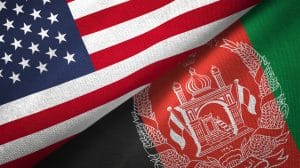The Department of Homeland Security (DHS) announced on March 16, 2022, that Afghan nationals in the United States are now eligible for Temporary Protected Status (TPS) for a period of 18 months. Secretary Mayorkas has issued this designation on the basis of “ongoing armed conflict and extraordinary and temporary conditions that prevent the country’s nationals from returning in safety.” Refugee advocates have been pleading with the Biden administration to designate TPS for Afghanistan following the Taliban takeover last August. Since the U.S. withdrawal and subsequent Taliban takeover, over 76,000 Afghan refugees have arrived in the United States, many of which are still in unresolved legal circumstances.
Along with those still in legal limbo, Afghans who received humanitarian parole and/or work authorization through Operation Allies Welcome may also be eligible for TPS. Thousands of Afghans in the U.S. would be vulnerable to losing legal protection following the expiration of their humanitarian parole; this designation will help to provide much needed time to determine all available U.S. immigration options. This TPS designation applies only to Afghan nationals who are already residing in the United States as of March 15, 2022. Applicants must pass the required security and background checks and meet all other requirements.
Coalitions such as AfghanEvac consider this decision to be “an appreciated bandaid,” but are not satisfied and insist on more durable solutions. AfghanEvac and other refugee advocacy groups are urging Congress to pass the Afghan Adjustment Act, which would create a pathway to permanent legal status for Afghan refugees.
By, Colby Feigenbaum, Legal Intern
USCs May Locally File I-130 petitions on behalf of Afghan, Ethiopian, and Ukrainian Immediate Relatives
The Department of State (DOS), announced yesterday that U.S. Citizens who are overseas with immediate relatives in Afghanistan, Ethiopia and Ukraine may now file petitions for U.S. permanent residence (I-130 petitions) on behalf of their family members at the nearest U.S. consulate in the country they are located. This policy change applies only to U.S. citizens impacted by the crises in Afghanistan, Ethiopia, and Ukraine.
To be eligible to file an I-130 petition on behalf of an immediate Afghan, Ethiopian, or Ukrainian relative:
- The U.S. citizen must be physically present in the country where they wish to file, i.e. in Afghanistan, Ethiopia or Ukraine
- The U.S. citizen can request to locally file on behalf of their spouses, unmarried children under the age of 21, and parents who fled Afghanistan after August 2, 2021; Ethiopia after November 1, 2020; or Ukraine after February 1, 2022.
If you believe you and your family qualifies to locally file an I-130 petition, please email your nearest U.S. Consulate or Embassy’s Immigrant Visa Unit. A list of U.S. embassies and consulates is available at https://www.usembassy.gov.


